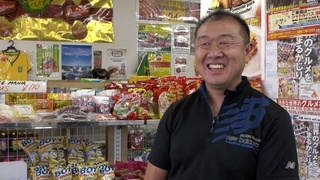Interviews
The breakdown of the family structure as a result of the deskasegi movement (Spanish)
(Spanish) I think that ... the families that have come as dekasegi depend on jobs. Then unfortunately many times in the same city, they, the couple, cannot find work in the same city. Therefore, one has to work far away. And that is when the family disintegrates. Then they break up and separate. As the divorce law in Peru, as elsewhere in Latin America is harsh... I*: It is more complex. It is more complex. Well, it is not like in Japan, that divorce is overnight, then the person takes up with another person/couple, and then a child cannot register as a legitimate child until one divorces and then the person can marry. * "I" indicates an interviewer (Alberto Matsumoto).
Date: March 24, 2009
Location: Tokyo, Japan
Interviewer: Alberto Matsumoto
Contributed by: Watase Media Arts Center, Japanese American National Museum




